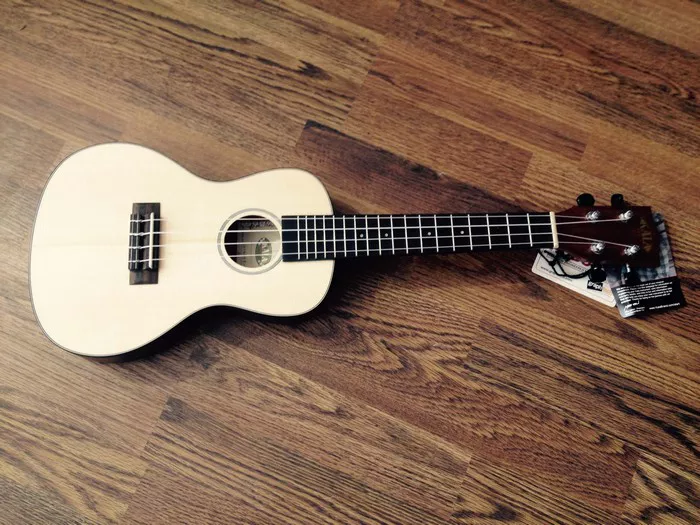In recent years, the ukulele has undergone a remarkable resurgence, transcending its traditional image as a whimsical, beachside companion. Today, the ukulele stands as a respected and versatile instrument, carving its niche in various musical genres. This article delves into the reasons behind the ukulele’s newfound status as a respected instrument and its growing influence in the broader musical landscape.
Historical Evolution of the Ukulele
To understand the ukulele’s current standing, it’s essential to explore its historical roots. The ukulele originated in the 19th century in Hawaii, drawing inspiration from Portuguese instruments. Initially regarded as a novelty, the ukulele’s accessibility and pleasant, melodic tones gradually captured the hearts of musicians and audiences alike.
Over the years, the ukulele evolved, weaving its way into popular culture and musical genres worldwide. From its humble beginnings in Hawaiian folk music to its integration into jazz, pop, and even rock, the ukulele has demonstrated its versatility and adaptability.
A Symbol of Joy and Positivity
One factor contributing to the ukulele’s respected status is its ability to evoke joy and positivity. The instrument’s bright, cheerful sound has a unique power to uplift spirits and create a sense of happiness. Musicians across genres have embraced the ukulele for its capacity to convey lightheartedness and optimism, making it a favored choice for both performers and listeners seeking a respite from the complexities of daily life.
Accessibility for Musicians of All Levels
The ukulele’s user-friendly design and relatively easy learning curve make it an accessible instrument for musicians of all levels. Its compact size, lightweight construction, and fewer strings make it an ideal starting point for beginners entering the world of music. However, this accessibility doesn’t diminish its appeal among seasoned musicians looking to expand their sonic palette.
With just four strings, as opposed to the six on a guitar, the ukulele allows for quicker mastery of chords and melodies. This simplicity fosters a sense of accomplishment, encouraging beginners to persist in their musical journey. Yet, even accomplished musicians appreciate the ukulele for its unique tonal qualities and the ability to translate complex compositions into an intimate, charming rendition.
See Also: The Impact of Ukulele Size on Sound: Things You Need To Know
Versatility Across Musical Genres
Contrary to its often-dismissive categorization as a novelty or folk instrument, the ukulele has proven its versatility across a spectrum of musical genres. From soulful ballads to lively jazz tunes, the ukulele has found its place in the hands of artists exploring diverse styles.
Notable musicians and bands, including Eddie Vedder of Pearl Jam and Jake Shimabukuro, have showcased the ukulele’s adaptability in mainstream and alternative genres. Its ability to seamlessly integrate into various musical landscapes has contributed to the instrument’s earned respect among musicians and audiences alike.
Revival in Popular Culture
In the 21st century, the ukulele experienced a resurgence in popularity, partly fueled by its prominent presence in popular culture. Its appearance in hit songs, commercials, and movies has reinforced the ukulele’s image as a versatile and endearing instrument.
Artists like Israel Kamakawiwo’ole’s rendition of “Somewhere Over the Rainbow” and Vance Joy’s “Riptide” have propelled the ukulele into the mainstream consciousness. These moments not only showcase the instrument’s melodic charm but also solidify its status as a respected choice for serious musicians seeking to add a touch of uniqueness to their compositions.
Educational Value and Community Building
The ukulele’s rise to prominence is further accentuated by its educational value and ability to foster community. Many music educators recognize the ukulele as an excellent gateway instrument for introducing students to music theory and basic playing techniques. Its popularity in schools and music programs has contributed to a new generation of musicians exploring the joys of creating music through this accessible instrument.
Additionally, ukulele circles and communities have flourished, bringing together enthusiasts of all ages and skill levels. These gatherings provide a supportive environment for players to share experiences, learn from one another, and collectively celebrate the instrument. The sense of community surrounding the ukulele has added a social and collaborative dimension, further solidifying its respected status in the musical world.
Conclusion
In conclusion, the ukulele has transcended its historical associations and emerged as a respected instrument with a lasting impact on the musical landscape. Its journey from Hawaiian folk music to a versatile presence in mainstream genres underscores the ukulele’s adaptability and enduring appeal.
The instrument’s ability to evoke positivity, accessibility for musicians of all levels, versatility across genres, and prominence in popular culture have all contributed to its newfound status. As the ukulele continues to find its place in the hearts of musicians and audiences worldwide, its reputation as a respected and cherished instrument is poised to endure for generations to come.


